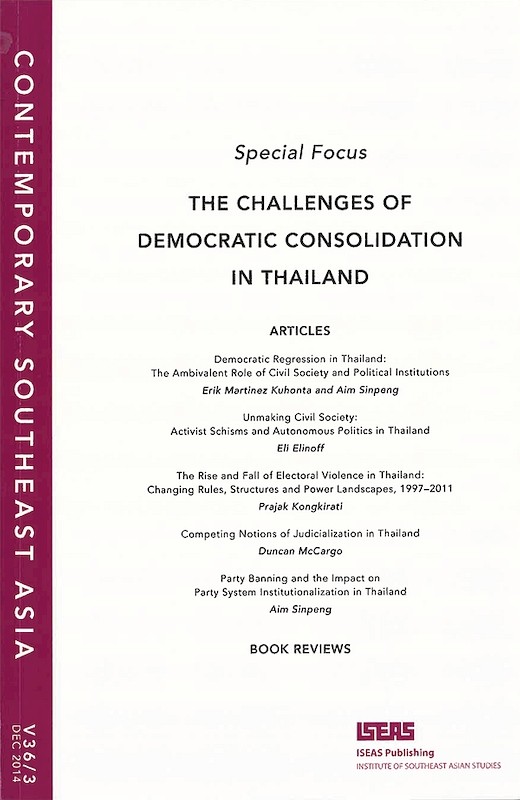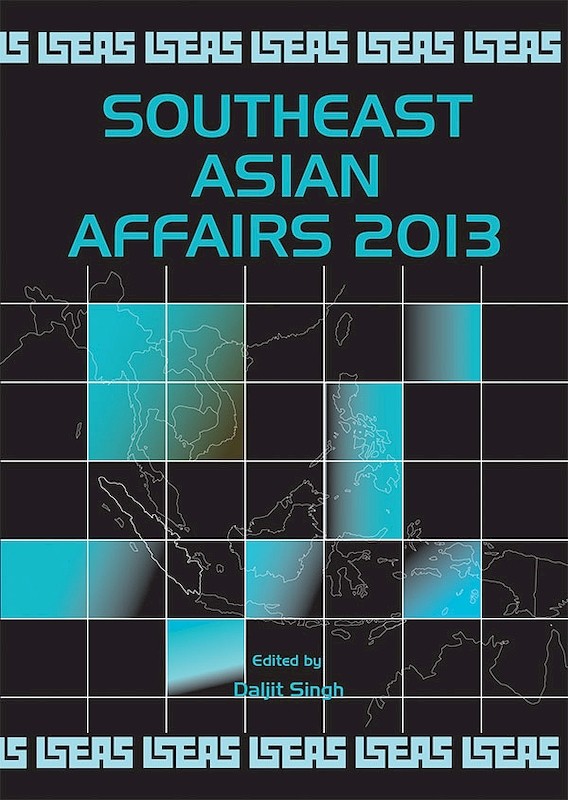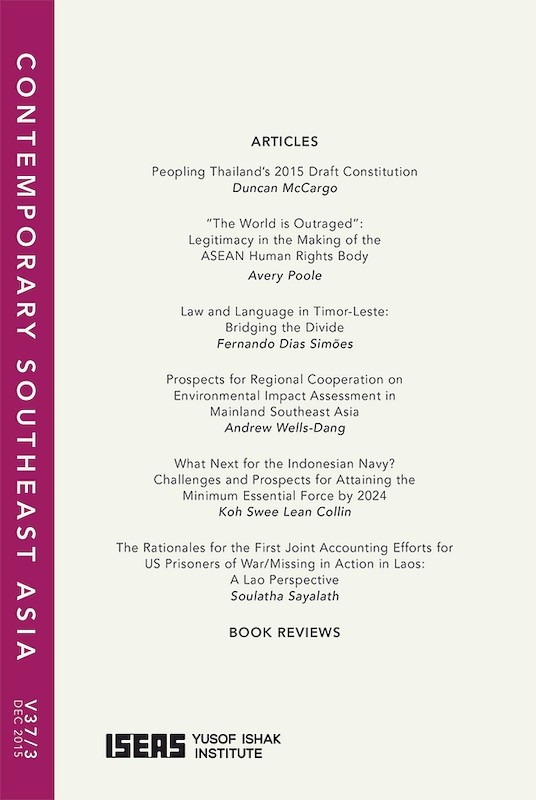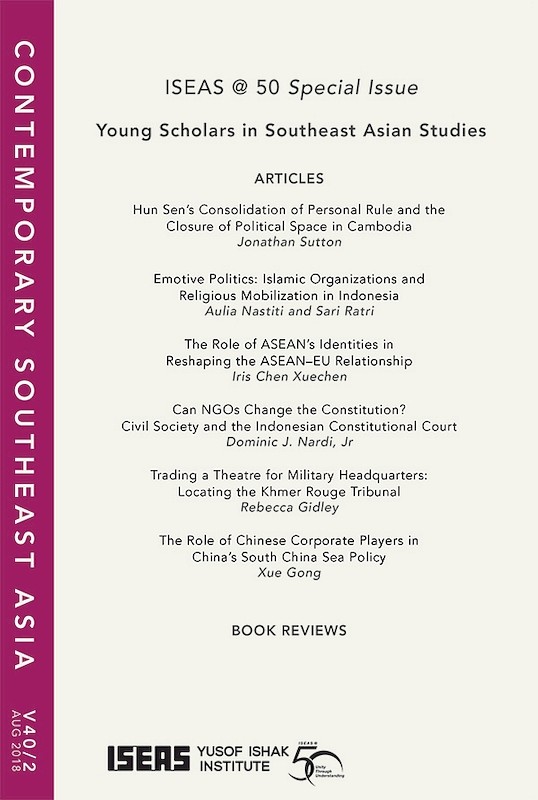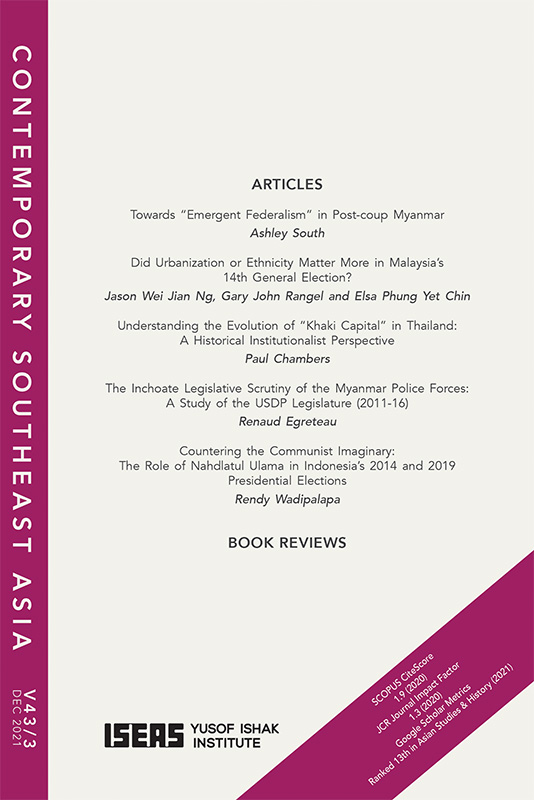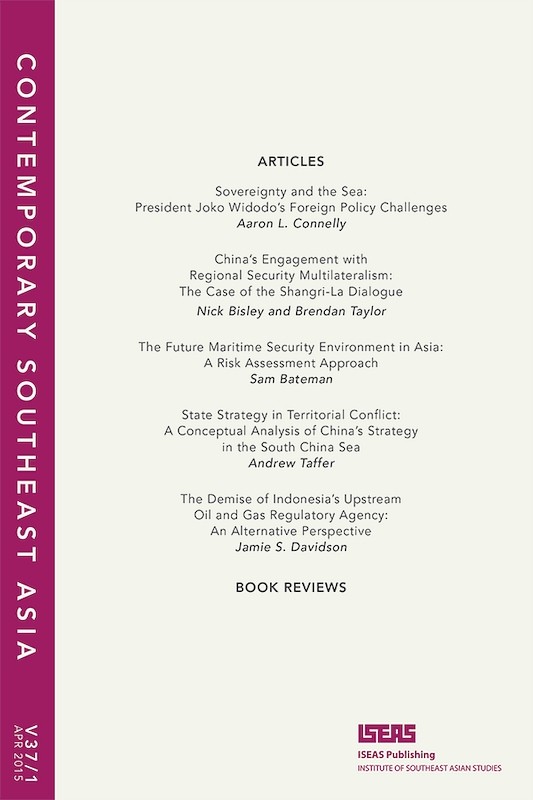Contemporary Southeast Asia Vol. 36/1 (April 2014). Special focus on "Constitutional Politics in Southeast Asia"
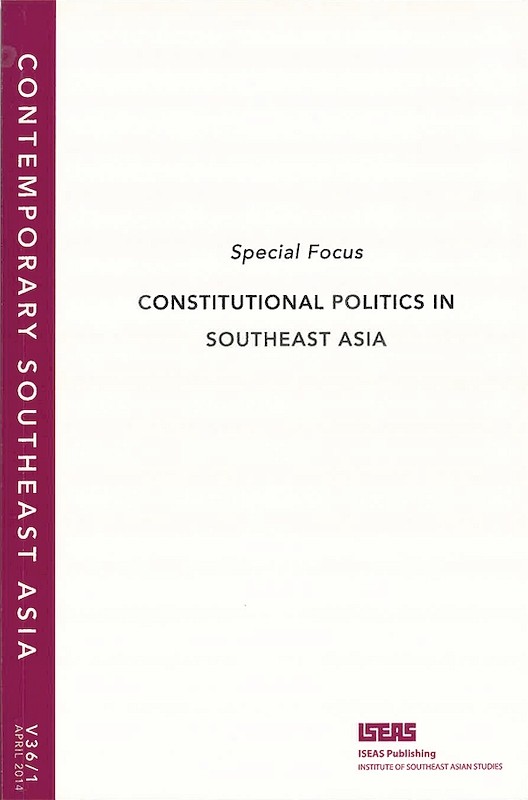
Date of publication:
April 2014
Publisher:
Institute of Southeast Asian Studies
Number of pages:
172
Code:
CS36/1
Contents
-
Contemporary Southeast Asia Vol. 36/1 (April 2014). Special focus on "Constitutional Politics in Southeast Asia"
[Whole Publication, ISSN: 1793284X] see abstractOver the last twenty-five years the constitutional landscape of Southeast Asia has changed tremendously. As in the rest of the world, states <br>in the region are dramatically altering their constitutions, often putting in place institutional safeguards for individual rights, such as constitutional courts and human rights commissions. Yet despite the numerous formal changes, actual constitutional practice in the region has been highly uneven. Four areas are particularly contested: constitutional drafting and design; individual and religious rights; the role of the military in constitutional politics; and the rule of law, courts and justice. How states in Southeast Asia resolve unfolding conflicts in these four areas will be critical to how constitutionalism evolves in the region. Replacing traditional legal scholarship with a new perspective on how constitutional politics are contested in the region, this article seeks to advance the scholarly debate by delving deeply into the dynamics that underpin unfolding constitutionalism trajectories and assessing whether countries in the region are actually deepening constitutional practice in a Western liberal sense or whether the model that seems to be emerging is quite different. -
Preliminary pages
- ARTICLES
-
Constitutional Politics in Southeast Asia: From Contestation to Constitutionalism?, by Björn Dressel, Marco Bünte, authors
-
Ways of Constitution-Making in Southeast Asia: Actors, Interests, Dynamics, by Aurel Croissant, author see abstractThis article analyses eleven cases of constitution-making in eight Southeast Asian countries since 1986. It investigates design choices and actors’ interests, the link between the form of the political regime and the extent to which process designs matter for the <br>legitimacy of the constitutional orders in the region. In doing so, the article demonstrates that the link between the form of the political <br>regime and the extent to which constitution-making is inclusive or participatory is less clear-cut. While we would expect better opportunities for public participation and broader inclusion of extra-<br>parliamentary actors in constitution-making in democratic environments, the empirical evidence is mixed. If and how this matters for <br>public support for a constitution and the social acceptance for the constitutional order is not clear. In fact, the Southeast Asian <br>experience seems to indicate that procedural legitimacy is less <br>relevant for the acceptance of a constitution than the legitimacy <br>that derives from the “day-to-day plebiscite” by citizens and elites.
-
Constitutional Contestation over Thailand's Senate, 1997 to 2014, by Michael H Nelson, author see abstractOne key component of modern constitutions is the representative system. The often-contested codification of this system over time in democratizing political orders depends on a number of factors, such as the existing institutional setting, the power relations of important political actors, <br>and the ideational resources, or political culture, available to the constitution drafters. This article examines the ideational resources drawn on by the members of Thailand’s 2007 Constitution Drafting Committee (CDC) in debating and deciding the shape of the National Assembly’s upper house, the Senate. This is mainly done by analysing the word-by-word minutes of their meetings. The respective processes <br>of the 1997 CDC are described more briefly in order to provide background on an area of constitutional contestation that found its latest expression in November 2013, when the Constitutional Court invalidated the National Assembly’s constitutional amendment, which would have reintroduced a fully elected Senate. The article <br>contextualizes these developments by reference to mass protests against the “Thaksin regime” that had been organized since November 2013 <br>by the so-called People’s Democratic Reform Council (PDRC).<br><br>
-
Deconstructing the "Socialist" Rule of Law in Vietnam: The Changing Discourse on Human Rights in Vietnam's Constitutional Reform Process, by Thiem Hai Bui, author see abstractOver the past two decades, efforts by the Communist Party of Vietnam (CPV) to build a “socialist” rule of law through legal and judicial reforms have contributed to the vibrant constitutional politics in the country. During the process of amending the 1992 Constitution, the socialist theoretical foundations of the Constitution quietly shifted <br>as a result of new thinking and values. The complex interactions of old and new ideological precepts were prominently reflected by the changing discourse of human rights during debates about amendments to the 1992 Constitution. This article investigates the development of the “socialist” rule of law and the changes taking place in the discourse of human rights during the constitutional reform process in Vietnam. In setting out the context and content of constitutional reform, it seeks to deconstruct the socialist rule of law and interpret the discourse of human rights accordingly. In doing so, the mechanisms by which human rights have been socialized will be unpacked to make sense of subtle changes in the human rights discourse. Furthermore, the paper aims to uncover the implications of such a change for the development of Vietnam’s human rights regime.
-
Constitutional Change and Security Forces in Southeast Asia: Lessons from Thailand and Myanmar, by Paul Chambers, author see abstractAchieving civilian control of security forces through constitutional reform processes has been a major challenge for young democracies or democratizing countries in Southeast Asia. In many cases, governments seeking to establish or consolidate civilian control have been faced with coups d’état or the threat of coups. The successful enshrinement of laws reining in security force adventurism has often accompanied compromises which at most provide militaries with considerable latitude in their areas of decision-making or at least protect soldiers from judicial prosecution. Ultimately, the constitutional incorporation of security forces into embedded political life is no easy task. This article examines two country cases of “defective” democracies. In each case, security forces have moved towards becoming more integrated under the constitutions of civilian-led regimes. This study poses four questions. First, how did the institutionalization of security forces under civilian-led constitutions occur? Second, how did these experiences vary? Third, to what extent do these security forces today possess differing degrees of enshrined powers? And fourth, based upon these experiences, how might civilian control be sustained over time? The article argues that constitutional change acceded to by security forces more often than not results from informal bargaining and concessions by civilians.
-
Public Support and Judicial Empowerment of the Philippine Supreme Court, by Imelda Deinla, author see abstractCourts have become an increasing focus for political contestation in Southeast Asia. Yet little is known about the basis of their political power and legitimacy. Drawing on recent scholarship in the field of judicial politics, and presenting a case study of the Philippine Supreme Court after the transition to democracy in 1986, this article explores the conditions under which the Court has exercised its powers in the context of a democratizing state such as the Philippines. More specifically, it will show how strong public support has enabled the Court to exercise its judicial review powers and its authority over contending political actors. In drawing attention to the understudied link between public support and judicial assertiveness, the paper aims to advance existing scholarship by going beyond existing indicators of judicial independence and to provide new insights into the dynamics of evolving constitutional practice in the region through the interaction of the courts with the public.
- BOOK REVIEWS
-
BOOK REVIEW: Regional Disorder: The South China Sea Disputes. By Sarah Raine and Christian Le Miere, by Mohd Nizam Basiron, author
-
BOOK REVIEW: ASEAN Regionalism: Cooperation, Values, and Institutionalization. By Christopher B. Roberts, by Leszek Buszynski, author
-
BOOK REVIEW: Samudra Manthan: Sino-Indian Rivalry in the Indo-Pacific. By C. Raja Mohan, by Chietigj Bajpaee, author
-
BOOK REVIEW: Preah Vihear: A Guide to the Thai-Cambodian Conflict and Its Solutions. By Charnvit Kasetsiri, Pou Sothirak and Pavin Chachavalpongpun, by Nicole Jenne, author
-
BOOK REVIEW: Regional Integration in East Asia: Theoretical and Historical Perspectives. Edited by Satoshi Amako, Shunji Matsuoka and Kenji Horiuchi, by Francoise Nicolas, author

